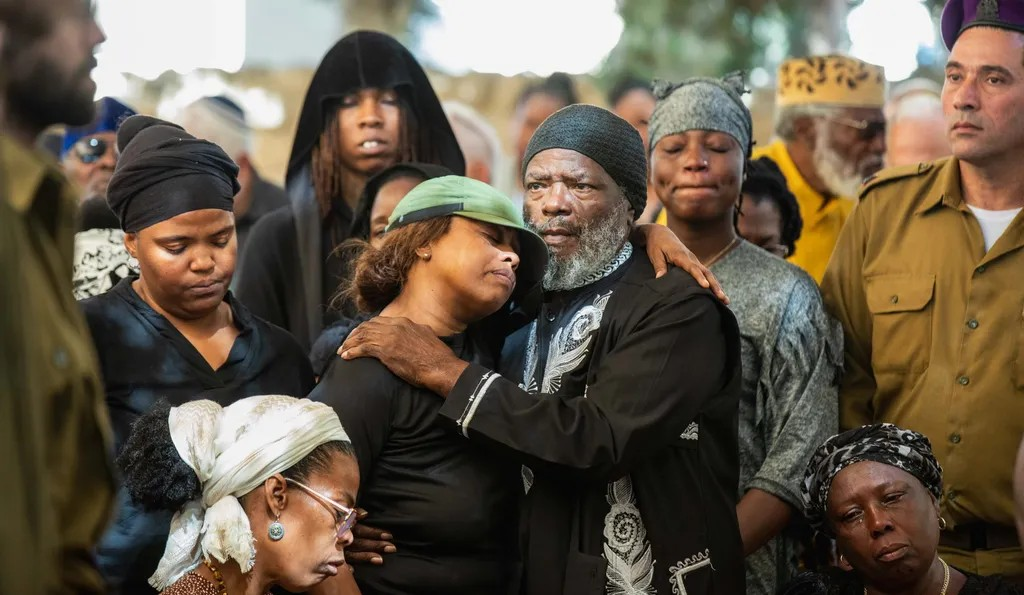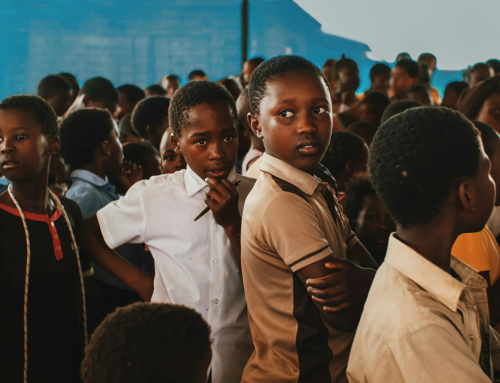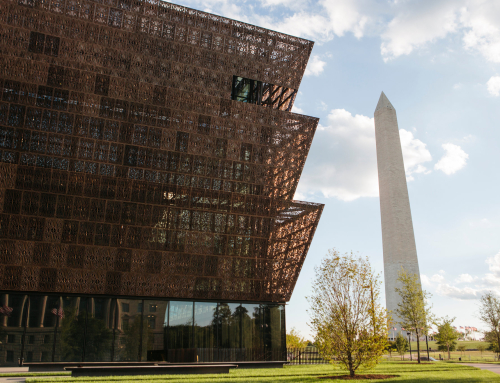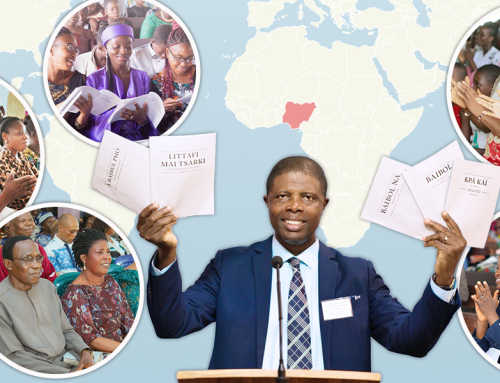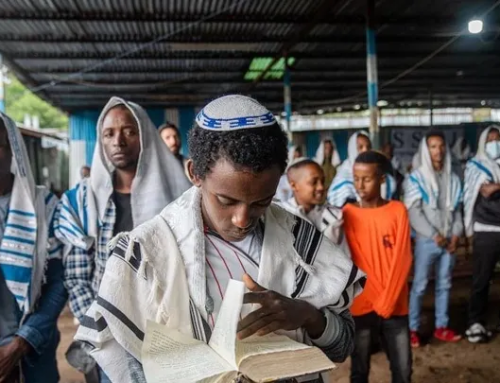The Hebrew Israelite community marked an unfortunate milestone last week, when it lost its first member in combat, Elishai Young, a 19-year-old conscript from Dimona. He was buried last Monday.
Some at the funeral expressed the irony that while Elishai was born in Israel and died defending the country, he was not eligible to be an Israeli citizen. That’s because Hebrew Israelis are still engaged in a struggle for full recognition that began with the first arrivals in 1969.
Israel, the startup nation, knows how to start projects but struggles to complete them. The founding generation didn’t think about the possibility that creating a Jewish state would awaken the identity not only of Jews but also others with an Israelite identity.
When a group of Black Americans showed up and wanted to settle in Israel but didn’t meet the Law of Return’s criteria for citizenship, the Israeli government didn’t know how to handle them. As a community emerged, it directed them to Dimona, assuming the desert conditions would break them. But they prevailed, building a thriving community in an abandoned facility for immigrants that became known as the Village of Peace. The government hounded them with occasional deportation attempts, but after a showdown in 1986 then-Interior Minister Arye Dery agreed to grant them temporary residency.
That new status allowed the Hebrew Israelites to integrate more fully into Israeli society and make more significant contributions. In 1995, members of the community founded Teva Deli, a vegan food company that has become a significant player in the local market. Two Hebrew Israelite brothers, Eddie and Gabriel Butler, were part of the group representing Israel in Jerusalem at the 1999 Eurovision Song Contest. (Eddie would represent Israel again in 2006.) In 2001 and 2009, respectively, Israelites defended Israel at the Durban I and II conferences on racism.
Yet, they were still living on the sufferance of the government, without full rights. Then, at the height of the second intifada, Aharon Ben Yisrael-Ellis, the first Hebrew Israelite to be born in Israel, was murdered in a terror attack while performing at a bat mitzvah party in Hadera in 2002.
“It opened doors, a lot of doors,” Aharon’s father, Nasik Elkanan Ellis, recalled in a 2008 interview. “It was an awakening. It was on the part of the government to make some changes because the Israeli community didn’t know that it was that bad.”
Recognizing that Hebrew Israelites deserved better, then-Interior Minister Avraham Poraz decided in 2003 to grant them permanent residency in exchange for the community agreeing to have its sons and daughters drafted. Upon completion of compulsory service, the children and their families could claim Israeli citizenship. That was no small ask for a group of peaceful vegans, but they answered the call. They began being drafted in 2004, with the army accommodating their diets.
When Ooriyahu Butler became the first Hebrew Israelite draftee, Ben Ammi Ben Israel, the community’s leader, told Haaretz: “From now on we will be an inseparable part of Israeli society. Until now, other people sent their kids to protect us, now it’s time for us to pay our debt.”
Indeed, the community of approximately 3,000 people has now paid back that debt and more for 20 years. It has shown exemplary commitment, claiming a 100-percent conscription rate, including among draft-age women – unlike Druze, Circassians and Orthodox Jews, whose young women are exempt from the draft.
After October 7, Hebrew Israelite content creators such as Ashriel Moore and Lilaq Logan, a commander in the Israel Air Force, have advocated for Israel on social media.
Last week, Elisha paid the ultimate price.
And yet, Israel still hasn’t fully reciprocated. Besides making citizenship for Israeli-born members conditional on military service, the government is still trying to deport dozens of Israelites whose tourist visas expired and never managed to arrange residency status in line with the Poraz arrangement. Poraz himself signed an affidavit that when he conferred permanent residency on the community, he didn’t distinguish between those who had temporary status and those who didn’t.
The community is frustrated because it had informed the government about these members in good faith on the understanding that the state would help the undocumented, not deport them. Undocumented members make up barely 2 percent of the whole community, but the pain in this close-knit group is no less great. Why put them through this emotional and legal torture?
Prime Minister Benjamin Netanyahu himself has recognized the community’s commitment to Israel. In 2012, on the occasion of their New World Passover, he wrote, “Your integration in recent years into the Israel Defense Forces reflects your status as an integral part of the Israeli experience and of its institutions.” It is time for his actions to finally become congruent with his words.
One can only hope that just as Aharon’s murder in 2002 opened doors for the community to attain permanent status, Elishai’s death will sensitize the government to the community’s contributions to and sacrifices for Israel. It is time to reciprocate the love the Israelites have shown for this country. It is time to award permanent residency to the remaining undocumented members and to allow all Hebrew Israelites with five years of permanent residency to claim citizenship should they choose, in line with the rights afforded to all other permanent residents under the Nationality Law, without having to wait to complete military service.
Original Article – It’s Time for Israel to Grant the Black Hebrew Israelite Community the Full Rights It Deserves – Opinion – Haaretz.com

